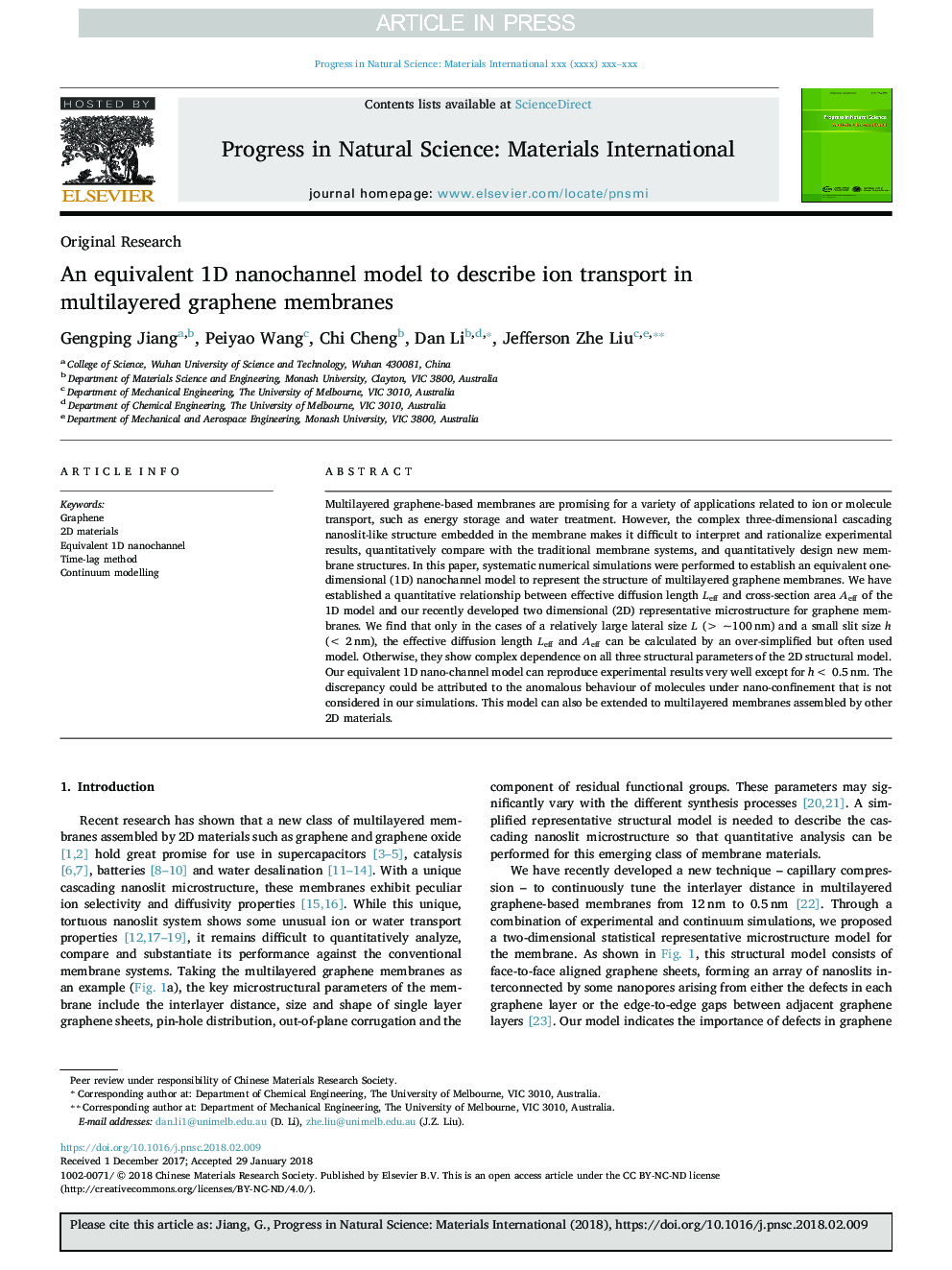| Article ID | Journal | Published Year | Pages | File Type |
|---|---|---|---|---|
| 7934740 | Progress in Natural Science: Materials International | 2018 | 5 Pages |
Abstract
Multilayered graphene-based membranes are promising for a variety of applications related to ion or molecule transport, such as energy storage and water treatment. However, the complex three-dimensional cascading nanoslit-like structure embedded in the membrane makes it difficult to interpret and rationalize experimental results, quantitatively compare with the traditional membrane systems, and quantitatively design new membrane structures. In this paper, systematic numerical simulations were performed to establish an equivalent one-dimensional (1D) nanochannel model to represent the structure of multilayered graphene membranes. We have established a quantitative relationship between effective diffusion length Leff and cross-section area Aeff of the 1D model and our recently developed two dimensional (2D) representative microstructure for graphene membranes. We find that only in the cases of a relatively large lateral size L (>â¯~100â¯nm) and a small slit size h (<â¯2â¯nm), the effective diffusion length Leff and Aeff can be calculated by an over-simplified but often used model. Otherwise, they show complex dependence on all three structural parameters of the 2D structural model. Our equivalent 1D nano-channel model can reproduce experimental results very well except for h <â¯0.5â¯nm. The discrepancy could be attributed to the anomalous behaviour of molecules under nano-confinement that is not considered in our simulations. This model can also be extended to multilayered membranes assembled by other 2D materials.
Related Topics
Physical Sciences and Engineering
Materials Science
Electronic, Optical and Magnetic Materials
Authors
Gengping Jiang, Peiyao Wang, Chi Cheng, Dan Li, Jefferson Zhe Liu,
